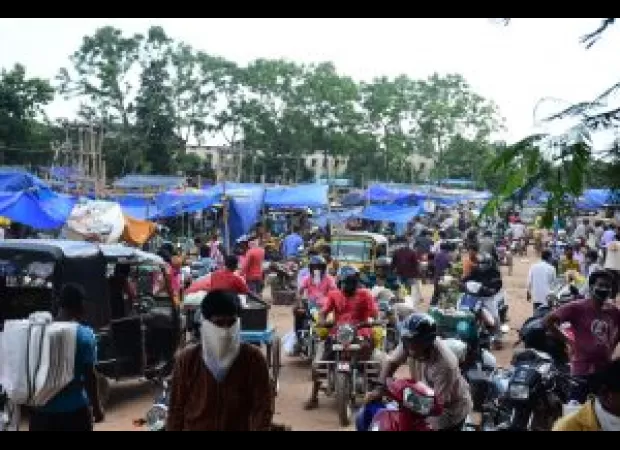Politicians hold rallies at remote tribal markets in Odisha.
In rural Koraput, politicians use weekly markets to connect with people due to limited technology. These areas will have elections on May 13.

In the rural areas of Koraput and Nabarangpur in Odisha, politicians from various parties have found a unique way to connect with the local people. With the upcoming Lok Sabha elections in mind, they have started visiting weekly markets, also known as 'haats', to reach out to the voters.
The two Lok Sabha seats in these areas, which are reserved for Scheduled Tribes, will go to polls in the first phase of the elections on May 13. The candidates are aware of the limitations of technology in these remote regions, where a large number of people are poor and have limited access to smartphones and television.
Kausalya Hikaka, who is contesting for the BJD party from the Koraput seat, pointed out that it is not feasible to rely solely on hi-tech methods of campaigning in tribal areas. She believes that the 'haats' provide a better platform for reaching out to the people, as they are central hubs for social and cultural interactions among the tribal communities.
The incumbent MP and Congress candidate for Koraput, Saptagiri Ulaka, also stressed the importance of these weekly markets for political campaigns. He recently visited the Kakiriguma 'haat' along with the party's candidate for the Laxmipur assembly segment, Pabitra Saunta. Ulaka believes that these 'haats' offer a cost-effective way to connect with a large number of people from different locations.
The 'haats' are held on specific days every week at fixed locations, and they serve as essential hubs for the local residents' daily needs. In addition to that, they have now also become the center of political discussions in these areas. The sudden influx of politicians into these markets has changed the atmosphere, and the villagers who are used to the routine of trade and social interactions are now witnessing a politically charged environment.
The villagers have also expressed their surprise and excitement over seeing politicians at their weekly markets. Hemant Gouda, a resident of Lathikotar village in Koraput, shared that no politician had ever visited their village due to its remote location. But now, with the 'haat' becoming a hub for political discourse, he feels a sense of excitement and change in the air. Similarly, Bhima Kirsani, who attended the Korkunda 'haat', stated that it has now become a place for political discussions, and they enjoy listening to the politicians.
According to reports, there are around 200 large and small 'haats' in the districts of Koraput, Rayagada, Nabarangpur, and Malkangiri. These weekly markets not only fulfill the essential needs of the local residents but also serve as a vital platform for political discourse in these remote areas. With the elections just around the corner, it will be interesting to see how these 'haats' play a role in shaping the political landscape of these regions.
1 Views






